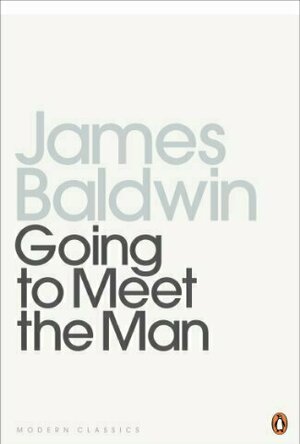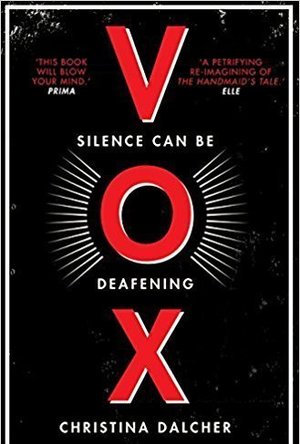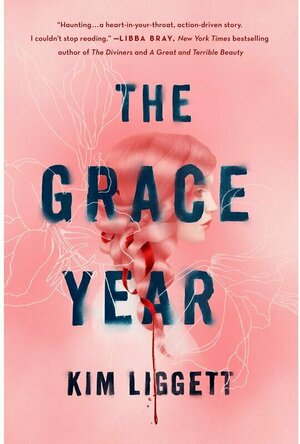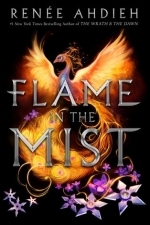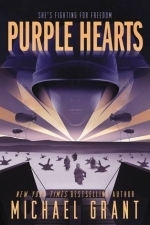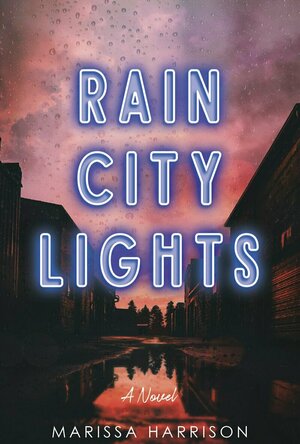
Rain City Lights
Book
In the summer of 1981, a serial killer preys on black, teenage prostitutes working Seattle’s...

Kill Process
Book
Kill Process is a technothriller exploring data ownership and privacy, the decentralized web, and...
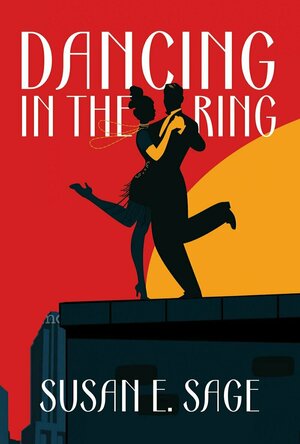
Dancing in the Ring
Book
Detroit in the 1920s proved to be the Paris of the West for many – including Catherine McIntosh...
Historical Fiction Biographical Fiction

Uncovering Love
Book
At forty, Scarlet Black had made more mistakes than she could count. Her bad boy had turned into a...
romantic suspense billionaire romance bookbuzz
MelanieTheresa (997 KP) rated Vox in Books
Sep 19, 2018
This book made me so ANGRY. I read it in a flurry of outrage in less than 24 hours because I just.could.not.stop.
It's the very near future, and the religious right has (seemingly) won in the United States. Women no longer hold jobs, are no longer allowed to read or write, and are limited to speaking 100 words per day, enforced by an electric-shock "bracelet" counter, their voices effectively silenced, their rights taken away. A religious zealot is pulling the strings of the puppet-President. School textbooks are replaced with religious tomes. The LGBTQ community is forced into prison/work camps for "conversion" to the "normal" way (read: man/woman). Engage in premarital or extramarital sex? Work camp in the Black Hills of South Dakota for the rest of your life, with a counter on your wrist set to ZERO. You may think "none of this would ever happen!" .....wouldn't it, though? Consider the current political climate and treatment of women, folks. Maybe it's not that far off the mark.
“Whose fault do you think it was?” he said. I stood in my kitchen, wanting to explain, careful not to, while he told me we’d marched one too many times, written one too many letters, screamed one too many words. “You women. You need to be taught a lesson.”
There will be the inevitable comparisons to The Handmaid's Tale, of course. I personally could not slog my way through The Handmaid's Tale,, so I can't speak to those comparisons. I can only tell you that if you aren't outraged by the very IDEA that this could happen, there may be something wrong with you.
I did feel like the ending was slightly rushed, but not to the point that it took away from the rest of the story. It was a satisfying, hopeful ending.
What would you do to be free?
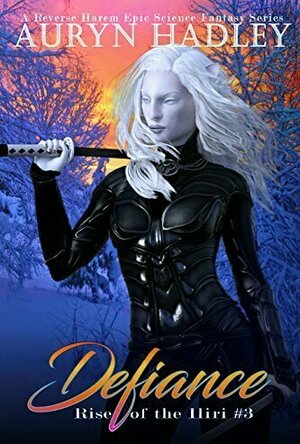
Defiance (Rise of the Iliri #3)
Book
HER ONLY CHOICE IS TO CHANGE HER WORLD… Salryc Luxx came to the Black Blades as ignorant of her...
Kristy H (1252 KP) rated The Grace Year in Books
Sep 26, 2019
"No one speaks of the grace year. It's forbidden."
I really liked the premise of this book. I'm sure you've heard all the comparisons by now. This is "The Handmaid's Tale" plus "Lord of the Flies." Throw a little "Hunger Games" in. Sold, right? The idea that society sends girls away at sixteen to rid themselves of their "magic"--it sounds really cool. A society that fears women and takes away their status, yet relies on their parts (literally) as medicine. Yes. So much of this book is really amazing. I highlighted so many powerful lines.
But, I don't know, guys... I am still wrapping my brain around this one. I just couldn't get into it. I never wanted to pick it up--I should have cared deeply for Trinity, and I did. Sometimes. Part of the reason I had problems going back to the book was because it stressed me out. These girls were mean. Sometimes I was confused. We were thrown into the story without any backstory--what time period, why they think women have magic, why medicine consists of body parts, who are the poachers, what are the outskirts, why is the original language flowers, etc. I guess that adds to the mystique, but I don't like reading when I can't figure anything out.
"But not all of us will make it home... not in one piece."
It seemed like this was going to be a power anthem. The girls rise against society. Or maybe just Trinity escapes and the outskirts rise against society. Someone should be revolting, right? And yes, Trinity definitely had her awesome moments. But it also seemed like there were lots of moments that involved rescue--by men. There's also a really convenient insta-romance in here. Everything just seemed a little jumbled and crazy for my taste. There's some amazing, underlining worthy lines and then some that just make you cringe a bit.
So, overall, I'm not totally sold, though there's potential here. I rate based on my enjoyment, so this is a 3-star read for me. But it's getting lots of rave reviews from others, so don't let my review necessarily hold you back.
Hazel (1853 KP) rated Flame in the Mist in Books
Dec 17, 2018
Famed for her highly rated <i>The Wrath & The Dawn</i>, Renée Ahdieh has created a new fantasy world full of original characters. Set in a land similar to the Middle Eastern countries we are familiar with, <i>Flame in the Mist</i> incorporates out-dated ideology, ancient lifestyle with a hint of supernatural, and, of course – it is a Young Adult novel after all – a dash of romance. With an eclectic mix of themes, it is a book without cessation of adventure.
The protagonist, Hattori Mariko, at the mere age of 17, is destined to marry the son of the Emperor’s favourite concubine, Prince Raidan. The book commences with the journey from her home, however, Mariko never makes it to the city. Ambushed and presumed dead, Mariko is alone in the dangerous forest, at risk of being discovered by the infamous Black Clan. Instead of waiting for rescue, Mariko, fed up of women being treated as inferior to men, decides she does not want to go home, nor does she want to marry the prince. Her only remaining option is to locate the Black Clan and discover who attempted to murder her. But for this to work, she needs to convince everyone she is a boy.
Whilst Mariko is worming her way into the clan, her twin brother is determined to track down and rescue his sister. Unbeknownst to him, Mariko is beginning to feel more affiliated with their enemies than with her own family. And so a dilemma arises. Does Mariko betray her new “friends” or be unfaithful to the brother she loves?
<i>Flame in the Mist</i> is not only about Mariko’s predicament; it also concerns an age-old feud between powerful families, involving the wrongful death of a disgraced Samurai. As the younger generation reach maturity, they determine to avenge the deaths of their fathers, and, without knowing, Mariko ends up in the centre of two warring parties.
It is a little difficult to get into the story initially; many characters are introduced, but their significance is not obvious for some time. To add to the confusion, vital persons are only formally presented at the end of the novel, which finishes on a cliffhanger. The similarity of the foreign sounding names also creates uncertainty.
Ahdieh cleverly includes a problematic situation that our own world has (almost) overcome. Mariko represents the female population, a gender that is believed to be inferior to their male counterparts. Controlled by fathers, husbands, and powerful leaders, women do not have the opportunity to make their own decisions about their lives. Although it is disconcerting that someone wishes to take Mariko’s life, the ambush provides her with the freedom and chance to prove women are as capable as men. Sadly, she has to pretend to be a boy in order to do this.
It was inevitable that there would be a love interest in <i>Flame in the Mist</i>, however, it is not as inspiring as readers may hope for. The attraction between Mariko and a member of the Black Clan almost comes out of nowhere. Not only was Mariko believed to be male for a wide stretch of the novel, the character in question was one of the more abusive.
<i>Flame in the Mist</i> being the first novel I have read by Renée Ahdieh, I have nothing with which to compare it or state why it is readers particularly admire her writing. The story was mediocre at best, with very little characters that garner respect. Having been published less than a month ago, there is already a lot of hype surrounding this book – either I am missing something vital, or readers are going to be disappointed.
Hazel (1853 KP) rated Purple Hearts in Books
Oct 24, 2017
An epic tale of a reimagined World War II comes to an explosive end in this third and final book Purple Hearts. Michael Grant created an alternative history in which women were allowed to enter the army and fight alongside the men on the front lines in Europe. Having earned accolades, promotions and the right to go home to America at the conclusion of the previous book, Rio, Frangie and Rainy decide to stay for the remains of the war. It is 6th June 1944, and the battle on the sands of Omaha Beach is about to begin – D-Day.
The story rushes into the horrors of the D-Day landings where Rio, now a Sergeant, is leading her platoon through the treacherous battleground, whilst Frangie, the medic, tries to patch up fallen comrades. The author teases the reader with the introduction of new characters who promptly get killed during this fateful day and battles further along the line. There is no sugar coating the horrific experience of soldiers and civilians, regardless of whether the scenes are fictionalized or not.
The difficulty with writing a work of fiction about the final years of World War II is that the majority of readers will already know the facts. Therefore, it was impossible for Grant to compose a drastic alternative history. Despite the inclusion of women soldiers, the main events occur exactly as they did in reality, beginning with D-Day before moving on to Liberated France, the Hürtgen Forest, the Battle of the Bulge, and, eventually, VE Day.
The three main characters have undergone complete transformations since the beginning of book one. No longer are they the innocent girls mocked for the belief they could be as strong as male soldiers. As horror after horror unfolds, readers are left with only the hope that these three survive.
Throughout book one and two, the narrative was interspersed with a commentary from an anonymous female soldier in a bed at the 107th evacuee hospital in Würzburg, Germany. As promised at the beginning of the series, readers finally find out which character this nameless voice belongs to, although it is dragged out until the final pages of the book.
The title, Purple Hearts, refers to the medal earned by soldiers injured in battle. Rio, Frangie and Rainy have each received one, along with a few other characters. Unfortunately, many are killed in the battles, some who have been in the story from the start, making this an extremely shocking book. It goes to show how dangerous war is and the brutality WWII soldiers experienced. It is a surprise that as many survived as they did.
Although at this point the main focus of the story is the war, there is still the underlying theme of equality, both for women and for black people. Frangie provides the insight into the segregation of blacks, being assigned to black-only patrols and having white patients refuse to be treated by her. However, as the war gets more violent, these lines get blurred until it is (mostly) no longer important the colour of a soldier or medic’s skin.
Purple Hearts is a brilliant end to a challenging series. Readers become invested in the characters and are drawn into a story that is so true to form that it is easy to forget that women did not actually take part in the fighting. Evidently well researched, Michael Grant has penned a series that educates whilst it entertains, opening readers’ eyes to the truth about war. This is nothing like a textbook full of facts and figures, it is a moving, personal (forget the fictional bit) account of what WWII was really like. Written with young adults in mind, this is a great series for both teens and older readers.
